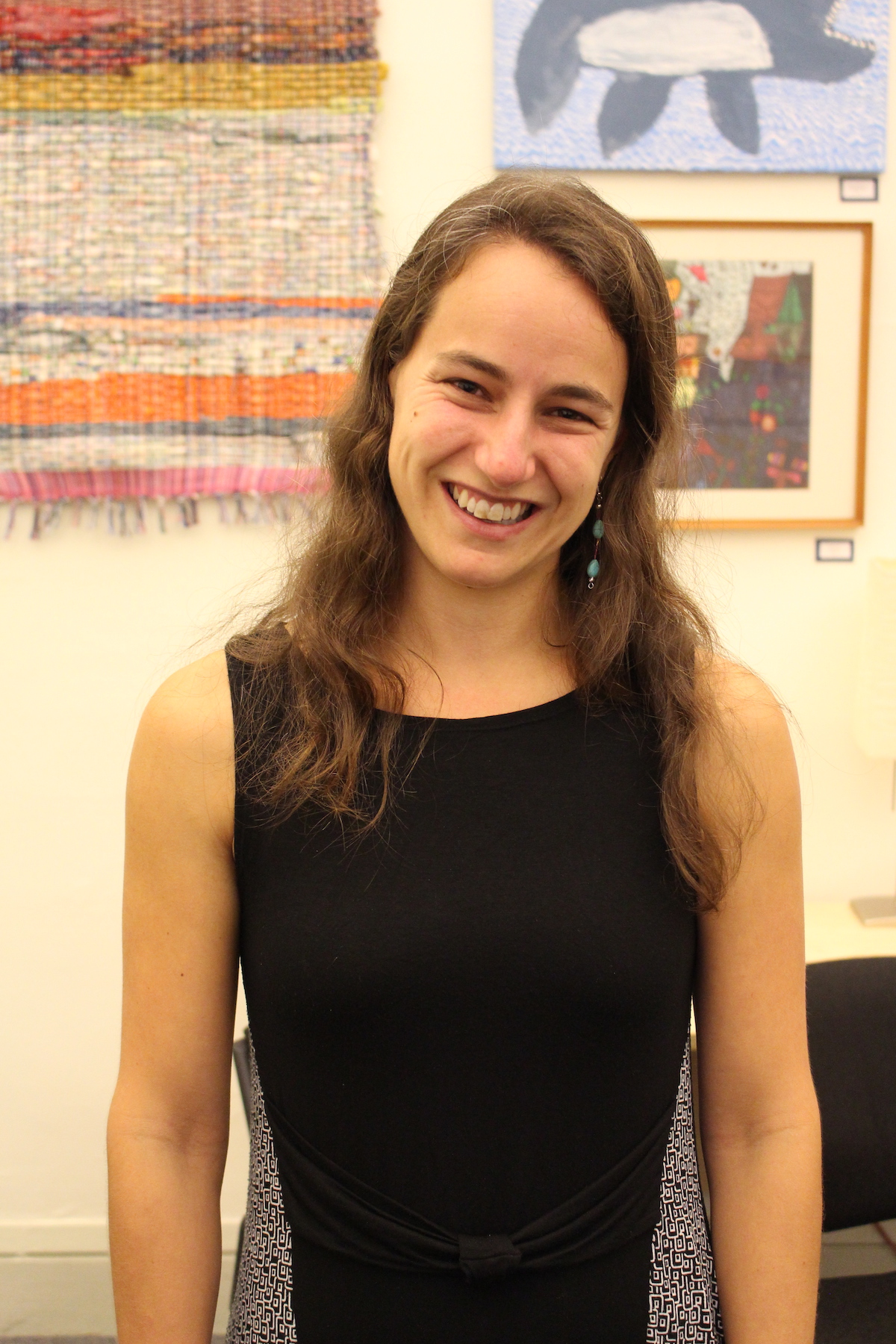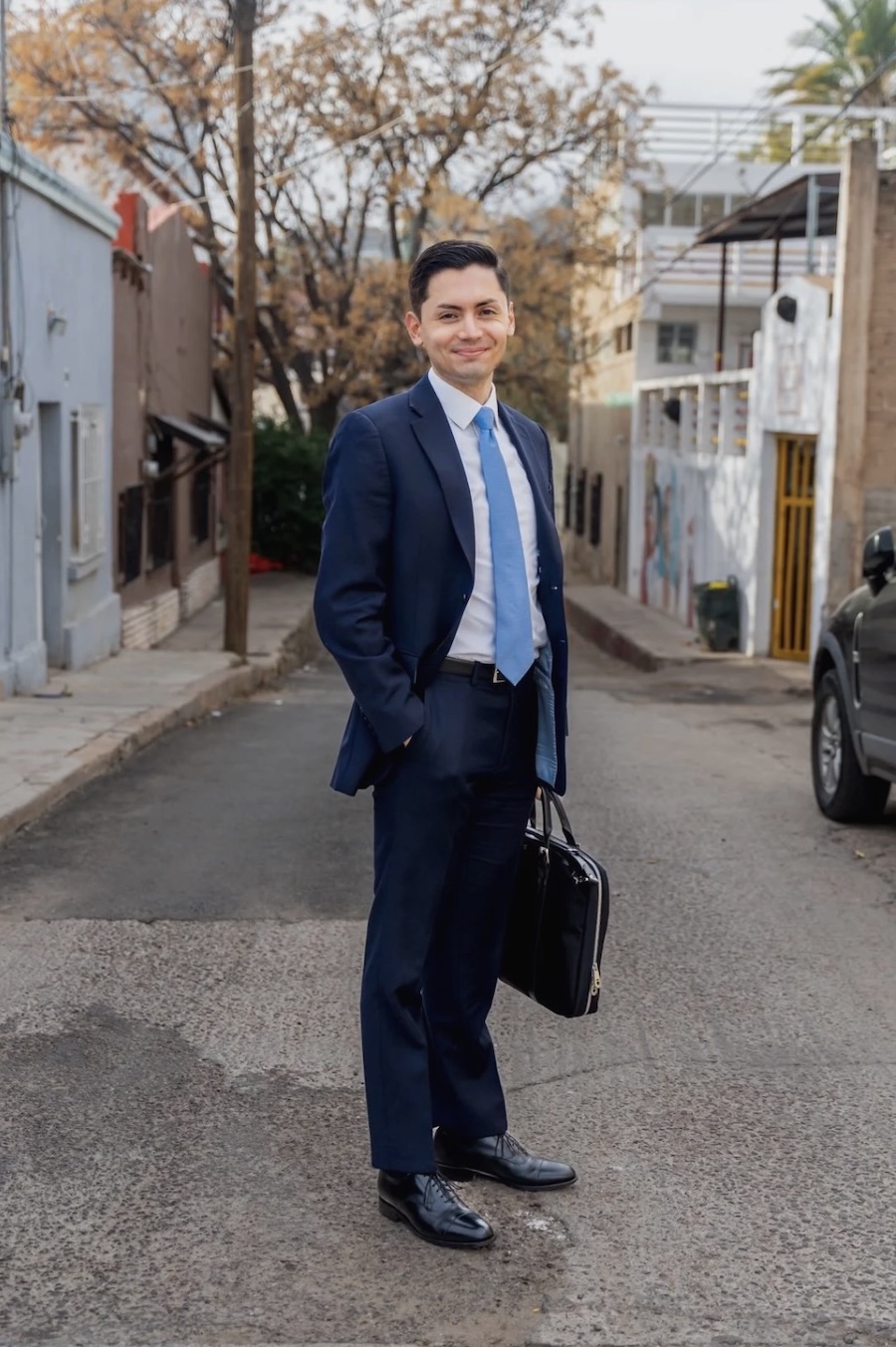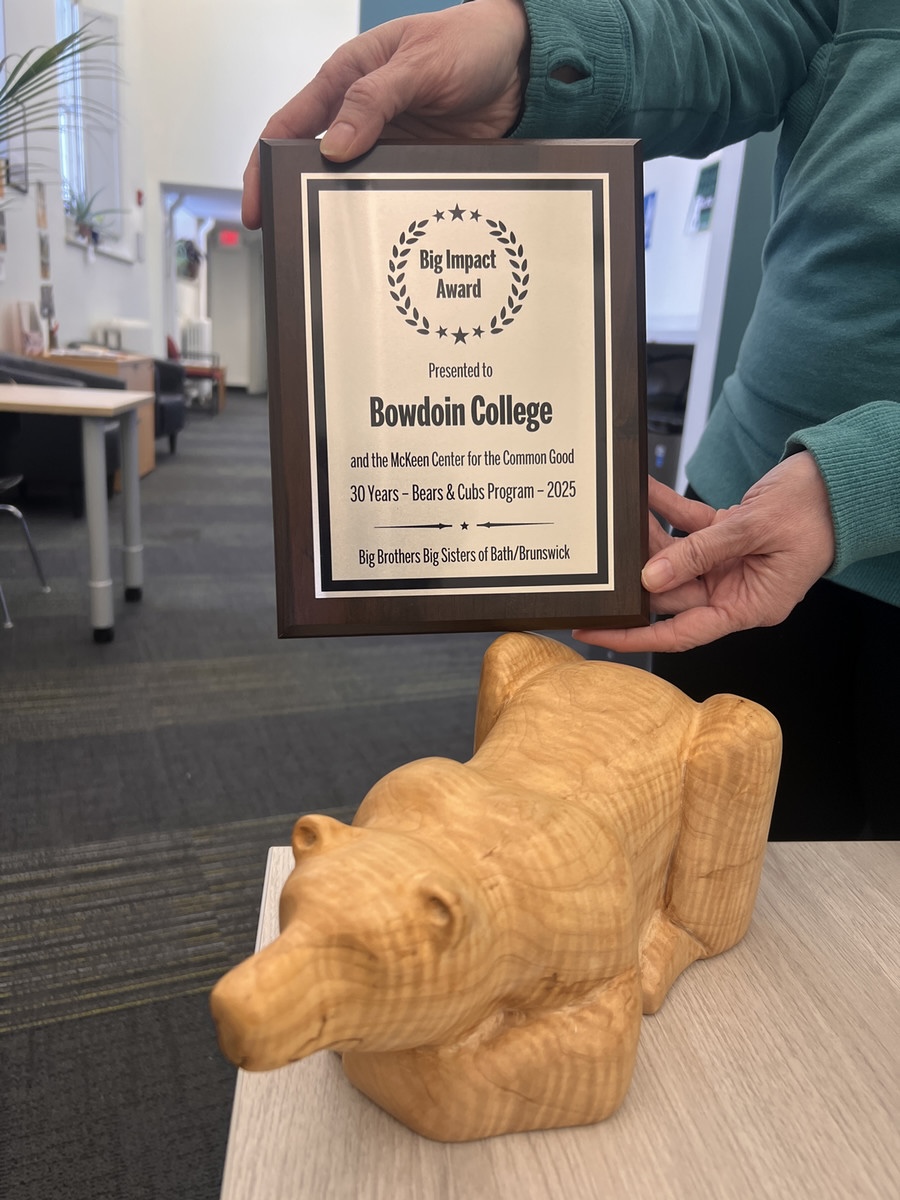No Option but North: Kelsey Freeman ’16 Discusses Her Book About Migration
By Julius Long ’20Kelsey Freeman ’16, author of a forthcoming book about Central American migrants traveling through Mexico to the US, visited campus Thursday to talk about her book, her career, and how her experiences at Bowdoin influenced her path.

Kelsey Freeman's visit was part of this year's Latinx Heritage Month and Beyond celebration at Bowdoin.
Freeman took the podium in Kresge Auditorium and quickly posed the question: “What does it mean to have power or to lack power as a migrant, especially as a Central American migrant?”
Her forthcoming book, No Option but North: The Migrant World and the Perilous Path Across the Border (IG Publishing, March 2020) attempts to answer that question. Intertwining the personal stories of migrants with research, her work investigates "the moral blind spots in migration" from the expanding gang violence that drives migrants out of their homes/home countries, to the dearth of legal options for working-class Central Americans and Mexicans.
At an earlier event in the McKeen Center in which Freeman discussed her career with current students, she said her goal for the published book is that it serve "as a vehicle to doing things like this, where I can talk to people and share my perceptions about the dynamics that are at play."
Freeman graduated from Bowdoin with a major in government and legal studies and a minor in Spanish. During her time here, she established connections with Maine’s Passamaquoddy people and led alternative spring break trips to the Passamaquoddy Reservation at Pleasant Point in Washington County. She was a recipient of the Grua/O’Connell Research Award for an honors project analyzing the strategies and developments of two indigenous social movements in Latin America. She also had two funded internships from the McKeen Center to work for nonprofits during her sophomore and junior summers.
In her junior year, she spent a semester on the Yucatan Peninsula in Mexico and conducted an independent study on Mayan education. There she began to unearth the litany of moral conflicts embedded within migration and migration policies.
After graduation, Freeman received a Fulbright Fellowship to spend nine months in central Mexico teaching English. In her free time, she volunteered in migrant shelters and—after getting to know many of the migrants—began to interview and record them talking about what propelled them to embark on their dangerous journeys north. Then she wrote "vignettes" about their experiences. Those vignettes eventually grew into her book.
When she first began her project, Freeman was anxious about asking people to share their often painful pasts. But many opened up to her. "Way more people than I expected wanted to share their stories, because so many of them are not heard," she said.
In her evening talk, she read excerpts from her book, giving a glimpse into the tremendous hardship that drives migrants away from their homes, and about the perilous path across the border that they then must endure—a path often made more dangerous by deterrent policies that further compromise their safety.
Freeman said she believes stories can be transformative. “I believe wholeheartedly in the power of story, and the power of policy, and the power of passionate, giving people,” she said.
“There are policies that privilege people over fear and xenophobia, and policies that acknowledge the root of the problem rather than demonize migrants. If we can understand, see, and name the web of violence that migrants endure to get to the US, then we have a stake in changing the policies that create it," she said.
In her current job as Native American college coordinator at Central Oregon Community College, Freeman dedicates herself to helping Native American high school students prepare for college. Her book No Option but North: The Migrant World and the Perilous Path Across the Border is set to come out on March 25, 2020.



